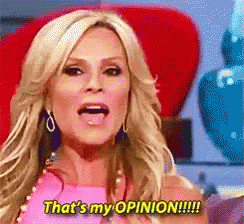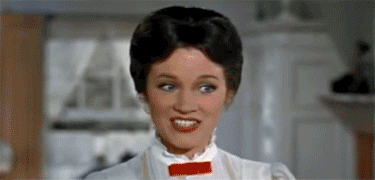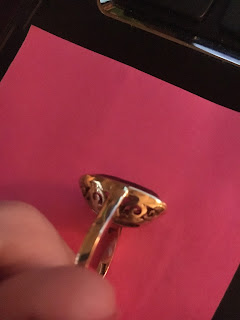At first, I was a little skeptical about the structuralism theory, thinking there would possibly be a brain explosion of some kind. There was. However, the exercises that Dr. Sandona prepared were very helpful. I especially found Vladimir Propp’s “Morphology of the Folktale” interesting.
From a structuralist’s point of view, if we only look a one of the five codes, we won’t fully understand the context of what we are reading. For example, there was so much more to the passage between Emily and the druggist than first thought. There were three different codes in one simple phrase.
A structuralist is like a gestalist. For “the whole is greater than the sum of its parts” applies to this theory.
Friday, February 23, 2018
Structuralism as a Science
In class, we have delved into the kind of structure used to tell a story, as well as the structure apparent in the miniscule details and sentences of that story. With that said, Frye enquirers that "everyone who has seriously studied literature knows that the mental processes involved is as coherent and progressive as the study of science" (10-11). Most of us have taken a class in biology at some point, which allows us to understand Fryes reference of the study of literature to the study of biology. For example, the periodic table of elements has a structure to where all of the elements are placed. The majority of the elements, which are mostly natural elements, are clumped together, then the bottom row consists of man-made elements. Just like how Folktales ("Little Red Riding Hood") are told with the same plot structure across the world with a different story each time, the natural elements were used as the basis for creating new elements within the realm of scientific rules and chemical processes. To further this point, let's take a look at the biology of an insect, such as a butterfly. There are individual parts that make up the butterfly (parole), as well as the butterfly having a function within the ecosystem and the environment it lives in (langue).

http://kiddyhouse.com/butterflies/wp-content/uploads/butterflypartsmag1s.jpg
In reference to the example from Frye, what would be the parole, langue, or even lexies of that sentence and its relationship to the text as a whole?
http://kiddyhouse.com/butterflies/wp-content/uploads/butterflypartsmag1s.jpg
In reference to the example from Frye, what would be the parole, langue, or even lexies of that sentence and its relationship to the text as a whole?
Thursday, February 22, 2018
Structuralism! My dear Watson.
I find structuralism to be immensely intriguing because of how it goes about analyzing works of literature. From the general to the specific, the world cannot have one without the other. In the general aspect of how we analyze texts it is sometimes harder to see things in the bigger picture. We become so focused on one piece of what we are reading that we completly miss out on what the author is trying to tell us. We wish to find something that will satisfy our desire for meaning in a text which has no meaning that pertains to what we think we want to find.
Structuralism also concerns itself with the details of the text. Certain words can change the whole meaning of a paragraph. How an author shapes his/her character with his/her own personality can be dependent on which words are used. Does the author use tidy or spotless in describing a room. How much impact do words have on shaping a scene?
There's a balance in reading too much between the lines and also looking at the more general picture.
Or these might just be the half-mad ramblings of a sleep-deprived twenty year old.

Structuralism also concerns itself with the details of the text. Certain words can change the whole meaning of a paragraph. How an author shapes his/her character with his/her own personality can be dependent on which words are used. Does the author use tidy or spotless in describing a room. How much impact do words have on shaping a scene?
There's a balance in reading too much between the lines and also looking at the more general picture.
Or these might just be the half-mad ramblings of a sleep-deprived twenty year old.
A Universal Language
On page 45 of Barry, it's stated that "a particular remark in French (a sample of parole) only makes sense to you if you are already in possession of the whole body of rules and conventions governing verbal behaviour which we call 'French'." This makes sense, as every time I've ever heard someone speak in a language I don't know it sounds like gibberish. It's very interesting to think about, however, because it's completely possible that person speaking another language is able to express a thought or emotion that we, as English speakers, are not able to even comprehend.
That being said, do you think that language is necessary to get points across, or for a shared conception of reality to exist? Do you think there is a universal language of sorts?
That being said, do you think that language is necessary to get points across, or for a shared conception of reality to exist? Do you think there is a universal language of sorts?
http://knowyourmeme.com/memes/gavin
Me trying to understand Structuralism after missing the first lecture and also being on strong painkillers
Literature's an Onion: It Has Layers - and Structure!
Structuralist Theory perfectly captures literature's many faces - through structure, we can observe and analyze the patterns and deviants employed, and can understand the value of word choice and the emotions they evoke. Frye seeks to describe the importance of criticism with the quote: "The poet may of course have some critical ability of his own, and so be able to talk about his own work but...what he says has a peculiar interest, not a peculiar authority. It is generally accepted that a critic is a better judge of the value of a poem than its creator." Do you believe that this is true? Is there something unaccountable in the author's own interpretation, and that there is a dividing line between critic and writer?
Beyond this dividing idea of judgment, what can we say of the value of Structuralism? From our class discussions, we found ourselves impressed by our better understanding of Sonnet 73 by breaking it down and valuing the diction and figurative language used by Shakespeare. What can we gain from having a Structuralist perspective? Does it help us to better understand, appreciate, and study the art of writing and all that it brings forth?
https://irp-cdn.multiscreensite.com/58151f06/dms3rep/multi/desktop/s3-1280x520.jpg
Beyond this dividing idea of judgment, what can we say of the value of Structuralism? From our class discussions, we found ourselves impressed by our better understanding of Sonnet 73 by breaking it down and valuing the diction and figurative language used by Shakespeare. What can we gain from having a Structuralist perspective? Does it help us to better understand, appreciate, and study the art of writing and all that it brings forth?
 |
| Structure and scaffolds can provide the foundation for something truly great. |
More Than What You See
Structuralism is about the whole of what you are analyzing and looking beneath the surface for meanings and to see what’s there. As Barry puts it in Beginning Theory, “its essence is the belief that things cannot be understood us isolation— they have to be seen in the context of the large structures they are part of.” (40) This reminds me not only of the face that most of the iceberg is beneath the surface and that the tip gives no real indication to how big or small said iceberg is, but also reminds me of what my choral director in high school taught us. We would put on a concert and that was all the audience saw. What they didn’t see was the word the choir put into it. Most text is somewhat like that, people do not always look at the text as a whole. In order to completely understand something, especially text, the key is looking at the whole text as one. If you don’t, you may miss what is just beneath the surface, so to speak, of what it is you are looking at.

Boundaries equal freedom
Hello classmates, Kamryn, Maddie, Abby, Tim, Alex, Meredith, Savanna, Layla and Natalie.
I hope that will be able to have class without my presence. I know you all miss me dearly, and I understand there may be bitter weeping and gnashing of teeth in my absence, but fear not, I will return next week.
Just kidding. I suck. Lol. Bet y'all didn't even notice I was missing. Hahaha (*fake laughing to hide real pain).
But for real, what a great workshop on Structuralism. The breaking down of Shakespeare's Sonnet 73 we did in class kinda blew my mind. Understanding the mechanisms a text uses to convey meaning (for me at least in the texts we broke down in class), helped me not only see how a text like Sonnet 73 conveyed its meaning, but also helped me understand even more clearly what it was saying.
We talked a lot about how language as a system has limitations, and that all literature must operate within that system.
At first I thought to myself that having a system we must operate within limits what one can say, but upon a little further digestion I think it is quite the opposite. Because once we understand the system language, literature and words operate within, the more freedom we have to be creative with it inside of its boundaries.
I think this quote from Albert Einstein can be applied to language as a system. The "Rules of the game" is our understanding of language, and "Playing" is how we express ourselves through language.
I hope that will be able to have class without my presence. I know you all miss me dearly, and I understand there may be bitter weeping and gnashing of teeth in my absence, but fear not, I will return next week.
Just kidding. I suck. Lol. Bet y'all didn't even notice I was missing. Hahaha (*fake laughing to hide real pain).
But for real, what a great workshop on Structuralism. The breaking down of Shakespeare's Sonnet 73 we did in class kinda blew my mind. Understanding the mechanisms a text uses to convey meaning (for me at least in the texts we broke down in class), helped me not only see how a text like Sonnet 73 conveyed its meaning, but also helped me understand even more clearly what it was saying.
We talked a lot about how language as a system has limitations, and that all literature must operate within that system.
At first I thought to myself that having a system we must operate within limits what one can say, but upon a little further digestion I think it is quite the opposite. Because once we understand the system language, literature and words operate within, the more freedom we have to be creative with it inside of its boundaries.
I think this quote from Albert Einstein can be applied to language as a system. The "Rules of the game" is our understanding of language, and "Playing" is how we express ourselves through language.
This being the first entry of Alex's Star Wars Literature Meme Archive
This is so cringey and wonderful. Shoutout to my fellow prequel memers
I made this myself but original source: http://knowyourmeme.com/memes/what-about-the-droid-attack-on-the-wookiees
For now, I can only conclude that a poem mandates, if not a total, an immediate structuralist approach to its reading. Such an approach simultaneously illuminates obscure language, offers previously unseen depth and complexity, and highlights the author's efforts to capture those intangible "ghosts" (as Calvino terms) with which humanity has always grappled; that struggle itself is poetic, and enhances the experience in a way improbable without structuralism.
Separate Circles, Same Track?
In
Frye’s Anatomy of Criticism the quote, “liberal knowledge is its own end” stuck out
to me because I was wondering how we can truly come to a real ‘end’ in school
of thought. Is there an end to philosophy? What about music theory? The opportunities
to approach something differently are endless, but how mind blowing is it that
we could probably never configure just all those ways? I think when I posted earlier
I was channeling my (attempted) understanding of structuralism into frustration
rather than open thought. Are there mixtures of schools of thought and theory?
Or are they black and white and everyone will be grouped into one exclusive
school of thought?
Me before I opened my mind:
 |
| (Source: https://tenor.com/view/real-housewives-thats-my-opinion-opinion-shout-yell-gif-3984951) |
Me after I opened my mind:
 |
| (Source: https://imgur.com/gallery/NZrRI) |
"the arts are dumb"
"Bridge” by Robert Ryman (1980), sold for $20.6 million dollars at auction in 2015.
While reading the excerpt from Northrop Frye's The Anatomy of Criticism, a few lines in particular stood out to me."There is another reason why criticism has to exist. Criticism can talk, and all the arts are dumb" (Frye 4). Additionally, "The artist...is not heard but overheard. The axiom of criticism must be, not that the poet does not know what he is talking about, but that he cannot talk about what he knows" (Frye 5).
Do you agree with these sentiments? Is the artist dumb, with his or her message heard only through criticism? And even if the arts cannot "speak" does that mean we need criticism?
Subscribe to:
Comments (Atom)







